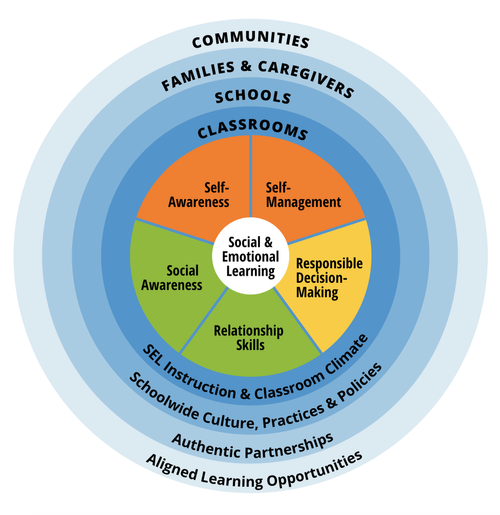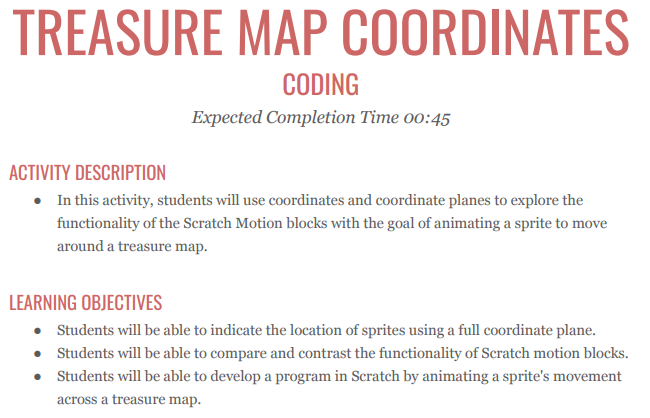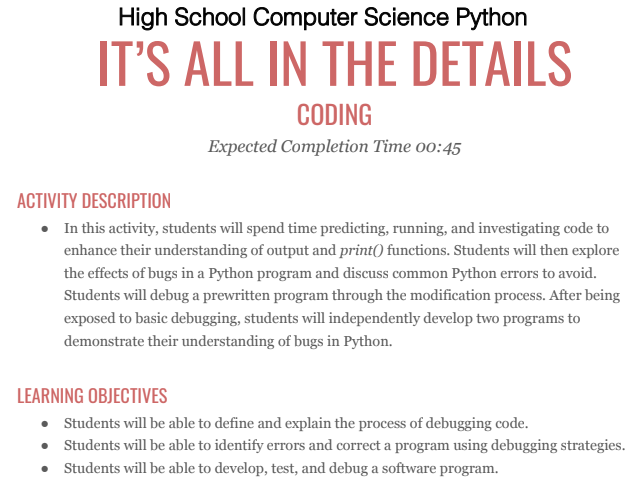
As a teacher, you are not only responsible for educating your students about academic subjects, but also for helping them develop important life skills.

The Collaborative for Academic, Social, and Emotional Learning (CASEL) Framework provides a comprehensive approach to promoting student success by addressing their academic, social, and emotional well-being.
[Learn more about the CASEL wheel and the other domains of SEL in our blog, Social Emotional Learning Competencies in the Classroom.]
In this blog, we’ll focus on two key CASEL SEL competencies: self-awareness and self-management.

Self-awareness is the ability to understand one’s own emotions, thoughts, and values (CASEL, 2020). This includes skills such as:
Self management refers to the ability of students to regulate their own emotions, thoughts, and behaviors (CASEL, 2020). This includes skills such as:
Guidance from CASEL (2018) suggests that a developmental approach to social-emotional learning is most effective. CASEL urges educators to consider how social and emotional competencies can be expressed and enriched at different grade levels.
[Read More: Keeping SEL Developmental: The Importance of a Developmental Lens for Fostering and Assessing SEL Competencies.]
What are realistic expectations for a students’ SEL abilities? Let’s explore common developmental milestones for the SEL domains of self-awareness and self-management.
Self-Awareness
Self-Management
Self-Awareness
Self-Management
Self-Awareness
Self-Management
It’s important to note that these are general developmental milestones and that students develop at different rates. However, these milestones provide a useful framework for teachers to understand the type of skills and competencies they can help their students develop as they move from grade to grade.
Incorporating SEL activities and lessons into your classroom routine can help your students develop these skills. For example, you can use journaling activities to help students reflect on their emotions, use role-playing activities to practice empathy, and incorporate goal-setting activities to help students develop self management skills.
How does this look in Codelicious Computer Science Curriculum? Here are two examples from lessons you can download on our site.
Grades 3-5

In this activity, students use coordinate planes with the goal of animating a sprite to move around a treasure map.
The lesson suggests encouraging students to reflect on their work in groups, reminding them to embrace the ideas of their peers. This helps them develop the self-awareness domain by appreciating diversity and differences in others. After all, no two computer scientists think alike.
Grades 9-12

In this activity, students will enhance their understanding of Python output and print() functions by predicting, running, and investigating code.
Students may become confused or frustrated if they can’t figure out why their code isn’t working. The lesson suggests promoting self-management strategies; in particular, debugging approaches like chunking, looking for patterns, and rereading code will help students respond to stressful situations.
In conclusion, the domains of self-management and self-awareness are critical components of the CASEL framework. By understanding the developmental milestones for these skills, you can help your students reach their full potential and develop the essential skills they need to succeed. With your support and guidance, your students can become confident, self-aware individuals who are prepared to tackle the challenges of the future.
CASEL (2018). Keeping SEL Developmental: The Importance of a Developmental Lens for Fostering and Assessing SEL Competencies. Retrieved from https://casel.s3.us-east-2.amazonaws.com/CASEL-Resources-Keeping-SEL-Developmental.pdf
CASEL (2020). Collaborative for Academic, Social, and Emotional Learning. Retrieved from https://casel.org/